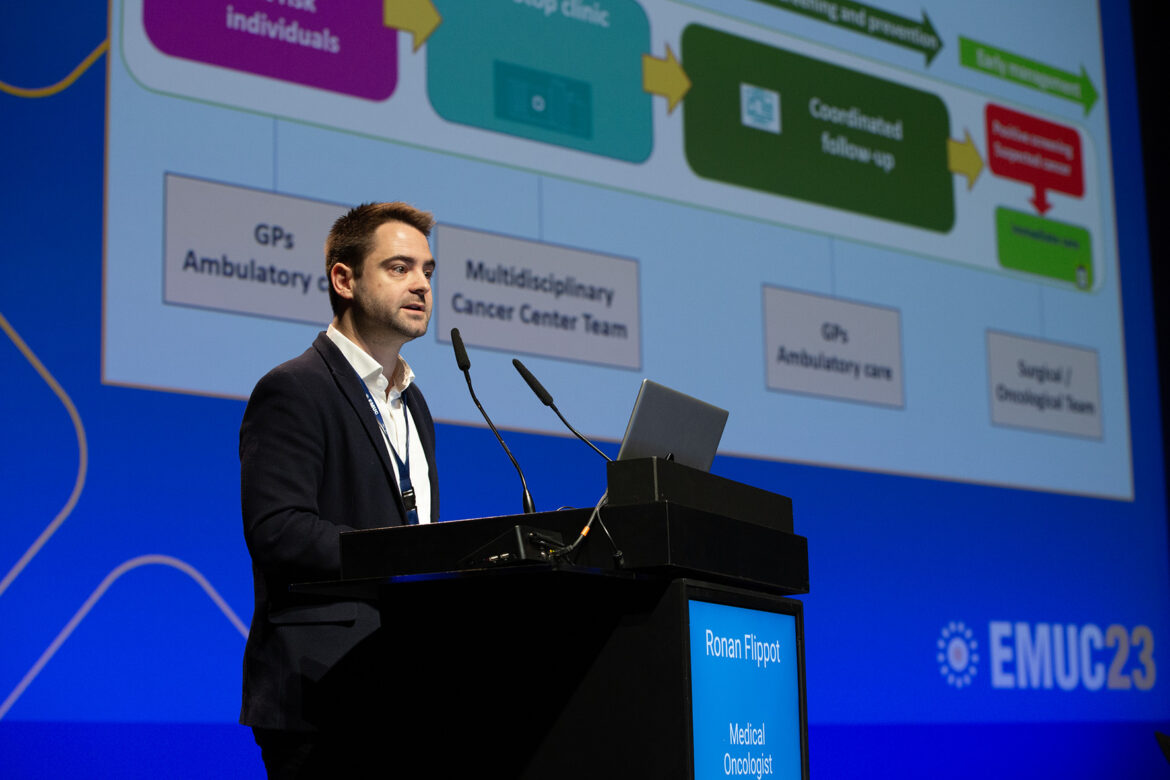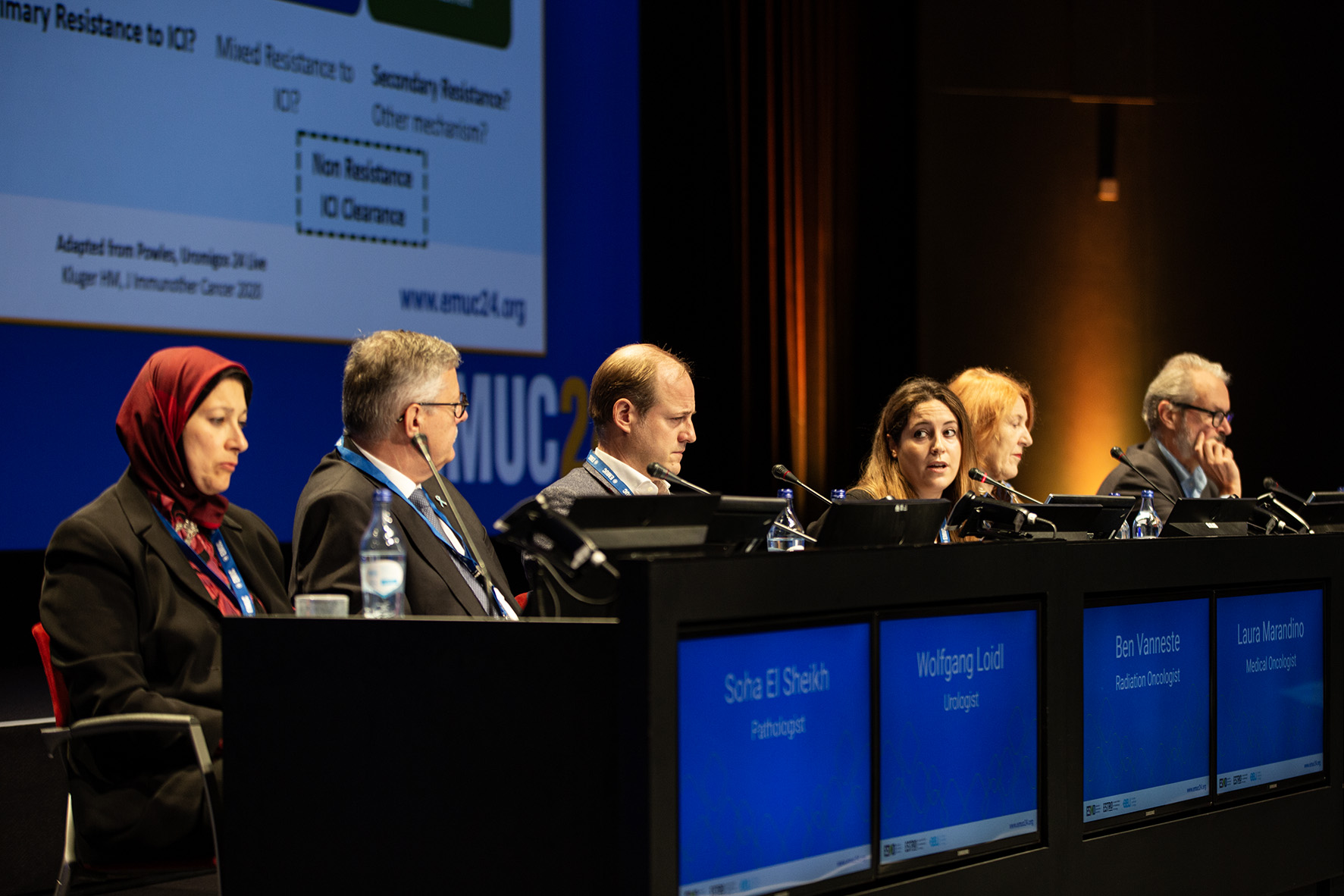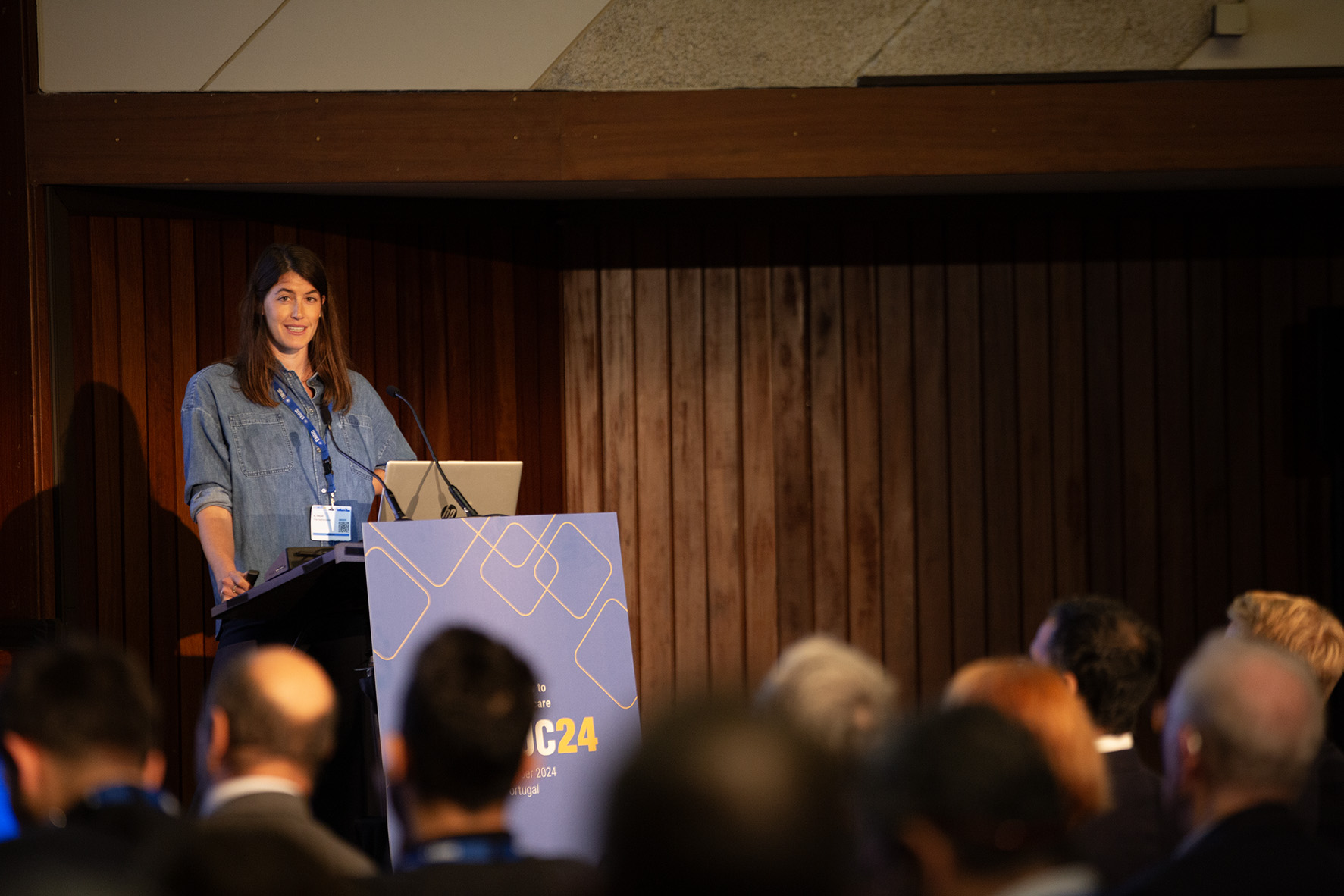What are the novel developments in genito-urinary (GU) cancer screening? Plenary Session 1 “Genito-urinary cancer screening in 2023” explored this topic today. Radiologist Prof. Harriet Thoeny (CH) and urologist Prof. Hein Van Poppel (BE) led the session centred on the prevalence of GU cancers, early detection of prostate cancer, screenings for renal cell carcinoma (RCC) and urothelial cancer.
Grounds for RCC screening
“RCC screening is a topic of great interest to patients, clinicians, and policymakers. Fascinating data will come from the Yorkshire Kidney Screening Trial (YKST),” stated urologist Prof. Grant Stewart (GB) during his presentation “Rationale for renal cell carcinoma screening”.
A sub-study of the Yorkshire Lung Screening Trial, the YKST is a targeted screening of high-risk individuals already attending for another screen test. The recruitment of 4,000 participants was completed in October 2022 and the six-month outcome review came out in May 2023. In January 2024, the report will be published.
Prof. Stewart referred to the Wilson and Jungner/WHO screening criteria, which often represent the de facto starting point for screening decisions today. The criteria comprised 10 principles and Prof. Stewart correlated each principle with the current data available for kidney cancer:
- The condition sought should be an important health problem
“In the UK, kidney cancer is the 7th most common cancer wherein 50% of patients die. An increase in the disease’s incidence in the next 10 years is predicted.” - Facilities for diagnosis and treatment should be available.
“There are well-established diagnostic and treatment pathways.” - There should be an accepted treatment for patients with recognised disease.
“The range of options for patients include surgery, ablation, and active surveillance.” - There should be a latent or early symptomatic stage.
“Yes, there is when it comes to small renal cancer but the vast majority is asymptomatic. This is why we need a way of identification.” - The natural history of the condition, including the development from latent to declared disease, should be adequately understood.
“Yes, it is partially as all lethal RCCs start as small cancers. However, currently, it cannot be predicted which small renal cancers will progress.” - There should be a suitable test or examination.
“Yes, ultrasound or LDCT (low-dose nonenhanced computed tomography) is used.” - The test should be acceptable to the population.
“There is apparent patient accessibility.” Prof. Stewart presented the findings of an online survey concerning public attitudes toward screening for kidney cancer regarding the five screening modalities: urine, blood, ultrasound, kidney computed tomography (CT), combined kidney and lung CT. The majority have opted for the combined kidney and lung CT. - There should be an agreed policy on whom to treat patients.
“Yes, there is with all renal mass patients but not necessarily with Sx/TA.” - The cost of case-finding (including diagnosis and treatment of patients diagnosed) should be economically balanced in relation to possible expenditure on medical care as a whole.
“It is theoretically proven for surgery to be more economical when compared to drugs.” - Case-finding should be a continuing process and not a “once and for all” project.
“This is still unknown. Is repeated screening economically viable?”
Interception to prevent urothelial cancer
During the presentation “Large-scale interception using personalised prevention algorithms – an opportunity for urothelial cancer screening”, medical oncologist, Asst. Prof. Ronan Flippot (FR), stated that urothelial cancer is the 6th most common cancer type wherein 25% to 30% is muscle-invasive presentation, and a five-year survival rate (i.e. 70% localised, 40% regional and <10% distant). The disease affects the ageing population (the median age of onset is 75 years) and frail comorbid patients.
According to Prof. Flippot, a large-scale interception programme has the potential to improve bladder cancer screening. Adherence of patients and ambulatory care professionals, and funding are paramount. He underscored that an interception programme can be significant for prospective screening trials and interventional strategies evaluation in multiple-risk settings. Furthermore, the constitution of biobanks will bring value to molecular detection programmes.
To learn more, access the full presentations of Plenary Session 1 through the EMUC23 Resource Centre.





